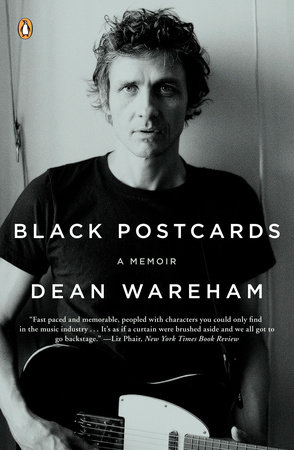

Black Postcards
By Dean Wareham
By Dean Wareham

Popular


A Memoir
A Memoir

Buy from Other Retailers:
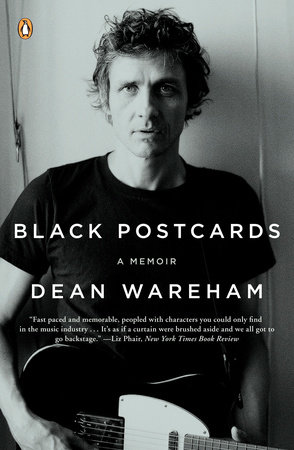
Buy from Other Retailers:
Published on May 05, 2009 | 352 Pages
Buy from Other Retailers:
ISBN9780143115489
Published onMay 05, 2009
Published byPenguin Books
Pages352
Dimensions5-1/2 x 8-7/16
When Luna broke up in 2004, my life was my own. I was not under constant pressure to go out on tour or hurry up and make the next record so everyone could get paid, so for the first time in 12 years I felt I was off the treadmill of recording and touring, and actually had the time to write a book that I'd been thinking about for a while. I wrote a couple of chapters, and was just writing a proposal, when I received an unsolicited email from the Editor-in-Chief at Penguin Press, wondering if I had ever thought about writing a book.
I have read a lot of rock bios, but most of the time these books are not written by the musician, but rather by a rock critic who spends a week interviewing them. This is of course a very different proposition from sitting down and trying to weave your own experiences into an interesting narrative.
I hadn't read anything that accurately portrayed what it is like to be in a band, to collaborate with a group of people over a period of years, to travel round the world playing your music—the adventures, the misadventures, the fun and the arguments, the comedy and the stupidity. There were a couple of memoirs or diaries that I enjoyed, like Dee Dee Ramone's and Dave Hunter's (of Mott the Hoople), but they conveyed a scene very different from the one I knew.
What was the scene you knew?
Mine was a small world of 7″ singles, fanzines run by geeky kids, college radio stations and rotten little clubs. Galaxie 500 was born in the post-post-punk era, a time when indie bands did not dream of becoming rock stars. And unlike the post-punk or new wave bands, we were not looking to shock people or write manifestos or push the boundaries of music. We were content to raid the recent past for inspiration, but in doing so we came up with our own unique sound. Other bands like Opal, Mazzy Star, the Spacemen 3, Yo La Tengo and Stereolab were involved in a similar exercise.
What first interested you in music and what music first interested you?
The first music I heard was whatever was on the radio in 1967—“Georgy Girl” by the Seekers and “Hey Jude” by the Beatles. And then the records that my parents played, by Glen Campbell or Nina Simone, Sam Cooke, Elvis Presley, Joe Cocker. Later it was my older brother's record collection—Diamond Dogs by David Bowie, Transformer by Lou Reed and The Idiot by Iggy Pop.
In 1977, at age 14, I moved to New York City and attended high school here. These were the years I first got really excited about music, and fortunately these were the years of the punk explosion. In 1979 and 1980 I saw the Ramones, Richard Hell, the Clash, Talking Heads, Blondie, Pere Ubu, Devo, Gang of Four, PiL, the Specials, B-52's (on prom night at the Mudd Club), Echo & the Bunnymen and the Undertones.
During my final months at high school, I bought a red Vox Superlynx guitar and tried to learn songs by the Sex Pistols and the Clash. In college I formed a band called Speedy & the Castanets, which years later morphed into Galaxie 500. Speedy & the Castanets entered in Harvard's Battle of the Bands my Freshman year. We came in last in every category—musical ability, songs and looks. It's true, we couldn't play our instruments, but we still thought we were the most interesting band.
How do you compare the independent music scene now to what it was when you formed Galaxie 500?
When Galaxie 500 started out in 1987, it was hard for a band like us even to get signed. Forget about a major label, no one in bands even thought of approaching them. Not for any moral reasons, or because we were “proud to be indie”, but just because the major labels didn't sign that kind of music. They were busy with Huey Lewis and Madonna and Bon Jovi, not in some kids who were influenced by Jonathan Richman and Joy Division.
So we went sniffing around about a dozen independent labels, like Coyote, Ace of Hearts, Throbbing Lobster, Taang!, only to be rejected. We sent cassette tapes around to local radio stations in Boston, and built a small live following that way.
Today there are twenty times as many compact discs being released every week, and everyone is in a band, and we are all absolutely inundated by product. Distribution is available to all (not good distribution, but a presence on Amazon). So it is easier to get signed, but more difficult to stand out.
Why do you think Galaxie 500 still has such a fervent cult following?
I happen to think the records are great, innocent and melancholy and beautiful, and almost out of time. Even when we were putting those records out, people either loved us or hated us, there was something extreme in what we were doing. Most every other band in Boston was playing thrash or metal or proto-grunge. We dared to play slow, to drone on one chord for ten minutes, singing about parking lots and Twinkies and cold snowy evenings.
Then Galaxie 500 broke up after releasing three albums, and when our label, Rough Trade, filed for bankruptcy, the records disappeared for some years in the early 90s. This was still a period where it was hard to find out-of-print records (today, if your record isn't available on Amazon, then surely someone has digitized it and uploaded it to their filesharing website), and I think the fact that the records were impossible to find for a while maybe helped the mystique grow. People had to resort to making cassette copies of those albums for their friends.
How did Luna begin and how did things change when Britta joined the band?
After leaving Galaxie 500, I recorded a handful of demos and was soon offered a deal by Terry Tolkin at Elektra Records (Terry had been let go by Rough Trade a few months earlier). This was 1991—and the music scene had undergone some quick changes. Sonic Youth had signed to Geffen Records, and a lot of other bands followed suit, and when Nirvana became huge all the major labels rushed to sign something “alternative”—a word that made little sense to me, anyway. Luna were called alternative, but so were Pearl Jam and Helmet and Green Day, and I never thought we had much in common with them.
I signed the deal with Elektra and put together a new band, calling my bass-playing friend Justin Harwood of the Chills, who I had met in London, and later drummer Stanley Demeski of the Feelies (probably my favorite band at the time, and certainly the best band that ever came out of New Jersey, but they had recently broken up). With the addition of guitarist Sean Eden, who we found by placing an ad in the Village Voice, this was the Luna lineup for the years 1992-96.
With Luna, I found myself on a major label, with radio reps trying (unscuccessfully, for the most part) to get us played on commercial rock stations, with sales teams hoping to shift millions of units, not thousands. With vinyl being replaced by the compact disc, the 90s were the salad days for major labels—they were making money like they never had before.
Justin left the band in 1999, returning to New Zealand, where his wife was expecting a baby. We had just been dropped by Elektra; perhaps Justin saw the writing on the wall. He was replaced by Britta Phillips. Of course I had no idea when she walked into our practice room on West 26th Street that my whole life would change.
One thing Britta immediately brought to the band was enthusiasm—it was exciting for her to join a band that was going on tour and selling out the Fillmore in San Francisco, whereas for Justin this was old hat—he had done it before. For that reason alone, Britta made being in Luna fun again. When you find yourself surrounded by grumpy, pessimistic people, it wears you down. But when people are enthusiastic, it rubs off on you.
And then of course Britta and I became romantically involved, and of course that changed the dynamic of the band, and of my life. As my psychiatrist observed at the time, if you put a woman into a band with three guys, there is of course going to be competition among the males. So there was a little of that. And then there were secrets and lies and all that, till finally, thankfully, it was all out in the open.
Britta was a good thing for Luna—before she joined I was seriously contemplating quitting myself, so rather than seeing her as a “Yoko,” I would credit her with keeping the band together for five more years and a couple of our best records.
Tell us about the pressure to create a radio hit and build mainstream success for Luna.
The pressure was there, but I don't think we took it that seriously. Sure, we heard the questions, and our manager warned us that it would all be over if we didn't deliver a radio hit, but you don't really think about that stuff when you're writing songs. At least I didn't.
Actually Luna had it relatively easy at Elektra, there were a lot of changes going on there, but our Artists & Repertoire (A&R) guy protected us in his own crazy way. After our second album a whole new regime came in (when Warner merged with Time, Inc. and the legendary record business characters running Warner, Elektra and Atlantic were pushed out). But we sold enough records and got enough press that it made sense for them to keep us on. Things really changed around 1999, when alternative rock was in steep decline. The labels were no longer looking for the next Nirvana, but for another Britney Spears, and a lot of A&R people lost their jobs. By that point Elektra bore little resemblance to the label that we had signed to in 1992. In the early years the motto had been “small but beautiful”, and Elektra was considered a “boutique major label” due to its small roster. But AOL Time Warner had now merged Elektra with East West into a much larger company, run not by A&R people but by the radio department. The head of the A&R department, Nancy Jeffries, loved our fifth record, but the guys in the “alternative radio” department told her there was no hit song on it, and maybe they were right—we were let go, and the record sat unreleased till we were picked up by the indie label Jericho Records. Interestingly, Sheryl Crow had a hit that summer with a song that we had also recorded—“Sweet Child O Mine” by Guns N Roses. But she was Sheryl Crow; we were not.
Readers are going to be interested in the reasons why Galaxie 500 and Luna split up. Can you talk about what led to the break-up of the two bands?
The simple answer is that I decided I had had enough, and decided to quit both bands. But bands are supposed to break up, that's part of the story, unless your band develops into a large multinational corporation like U2 or the Rolling Stones.
The breakup happens when you can't stop thinking about breaking up, when you no longer want to spend the majority of your waking hours in close proximity to your fellow musicians, when the reasons to break up outweigh the reasons to stay together. And when resentments, some of them petty, build…; to the point where you can't see what you loved about each other, but only what is driving you crazy.
I left Galaxie 500 because I felt trapped and controlled. The situation was inherently untenable—a 3-piece band where the rhythm section form a married faction who meet prior to band meetings (at home) and vote as a bloc. It may have been a democracy, but it didn't feel democratic to me. I felt trapped inside my own band. When I dared to record a song outside the band, for a compilation album that our producer Kramer had put together, my bandmates were upset. When I participated in a benefit show for the Chemical Imbalance fanzine (playing songs on acoustic guitar after Damon and Naomi said they didn't want Galaxie 500 to do it), they were angrier still, and said I had no right to play Galaxie 500 songs without them. Our friendship was deteriorating—we were business partners, not friends, and the joy of making music together was gone.
Luna lasted much longer—twelve years—until we reached a point where I really thought there were enough Luna albums in existence (seven). What was the point of making another? Perhaps if we had been making millions of dollars. But we weren't, and I felt a constant pressure to help making a living for four band members, in a time when it was becoming more difficult to sell CDs, partly on account of the internet revolution.
And things that were fun and easy at age 28 were different at age 40. Rock and roll bands are for kids. As you get older (and maybe have a family), you find it is not the easiest way to organize your life—that family life and rock and roll do not mix easily. A life on the road presents many hazards for your life at home.
How did you remember all the details from past performances for your book? Did you keep notes while on the road?
I found I had extensive notes on the Galaxie 500 years. I did not have as much on the first few years of Luna, but then, around 1997, I started keeping a tour diary, which I would post on our website. Only there were certain private details that were not suitable for public consumption that were left out. I didn’t say anything about my occasional infidelities. I didn't mention crushing yellow Dilaudid pills and snorting them in the back of the van. And certainly I didn't mention that I had a crush on the new bass player, or that we started seeing each other secretly after an end-of-tour party in a dorm room at the University of Massachusetts at Amherst, unbeknownst to anyone in the band (we thought). When I started writing the book, with the band broken up and my marriage finished, I was able to include these details.
There were other sources—my old itineraries from the Luna tours, with the club names and dates, and I found I could usually remember something about each evening, each city that we visited, whether it was playing foosball at sound check, or getting into an argument backstage about having to light Sean's cigarettes for him, or walking around Lake Geneva at 4 A.M.
Tell us about some of your best and worst experiences on the road with Galaxie 500 and Luna.
Worst experiences on the road usually involve horrendous travel days, driving in the snow, driving all night long, the bus breaking down, getting lost. You have to expect something like that on every tour. I remember one long drive from Boston to New York with Galaxie 500, and I was annoyed that Damon wouldn't let me drive our rented Aerostar minivan. So I chanted silently inside my head “crash, crash, crash the van.” When we met up at sound check at the Knitting Factory later that day, he had crashed the van. I had to go out to Newark airport at three in the morning to get another one.
The final Galaxie 500 tour of Europe was less than fun, as I had already half-decided to quit. I recall driving from London all the way to Rennes in Western France one day, and feeling that we were about ready to kill each other. Two weeks later we were stranded at the airport in Copenhagen, trying to get a flight home. Our tickets were on Pan Am, but between the start and the end of the tour Pan Am had gone out of business. So there we were, pleading with a guy behind the counter, and Damon told him “I'm going to kill you if you don't put us on a flight.” He put us on a flight.
With Luna we sure spent an awful lot of time riding in Ford Econoline vans, for four, six or eight hours a day, for five weeks at a stretch. Riding in a van can turn you all into infants, playing out roles you learned as children. It is not a very civilized way to spend your life. One day we ate breakfast, lunch and dinner at Denny's. There were a couple of times that Sean and I actually got into shoving matches over ridiculous things, like my holding his shoe out the window, or me laughing when he left a bag of cookies at the airport.
The best live experiences were not necessarily on the big stage, though those could be fun. They can be the little shows you play in Malmo, Sweden or Albuquerque, New Mexico, to 300 people or to 50 die-hard fans in Osaka, fans who have been waiting for years to hear you and actually cry when you play your songs. When people are excited to see you, then you are excited to be there.
How have you had to adjust to the changes in the music business from the 80s to your experience as part of Dean & Britta?
The one thing I have learned about the music business is that it is in a constant state of flux. You don't see that at first—you think you have a handle on the structure of it, indie labels here, major labels there, compact discs providing perfect sound forever. But who would have predicted that the entire thing would come crashing down, as is happening now.
The music business was built on the spending power of affluent Western teenagers. The teenagers are still affluent, but they have figured out a way to get the music for free, and this is a problem. In 2008, the labels find themselves selling a product (compact discs) that fewer and fewer people buy.
And the relationship between making records and touring has changed. It used to be that you toured to promote your new record. Your record company recognized this, and they actually gave you money (tour support) to help you get out there and promote the product. But today the labels enviously look at the money artists make at live shows (something that you cannot experience on the internet), or selling T-shirts, and some of them are moving to get a cut of that income.
How does the creative process differ for you in writing a book and writing music?
Writing music is easy enough, all it takes is a little practice. You pick up a guitar and start playing some old song and then maybe you turn it around and your fingers play something you weren't expecting and there's the beginnings of a new song. But writing lyrics is more difficult. For any given song, I would first work on the melody, which determined to a great extent the structure of the lyrics, because of course each syllable corresponds with a note. Putting together an album's worth of lyrics often felt like completing a large jigsaw puzzle, a puzzle that would take months to complete. I would take lines from TV shows or fashion magazines or the title of a painting, and mix it perhaps with a story from my own life, and sometimes this worked and sometimes it didn't.
Writing a book was far more difficult. With lyrics, you can be clever and cryptic, hide behind rhymes and wordplay, and reveal very little about yourself. The songs might be about me, or they might be about someone else. I can write them in the first person or the third. I can be serious or silly. Writing non-fiction, especially a memoir, involves actually taking a stand, examining how you actually feel, expressing an opinion, offering yourself up to be judged. And examining my own behavior over the course of the last twenty years was not always easy—it was emotional at times. When you write about the saddest days in your life, you get sad all over again. I relived the day that my affair with Britta was discovered, the day I walked out of the house, the day my 2-year old son asked me what had happened to my toothbrush, and the many hours spent in my shrink's office.
What's next for you?
As I write these words I am sitting in the back lounge of a tour bus, on Day 1 of a North American tour, a Dean & Britta tour. We recently released our second album, Back Numbers, recorded by the legendary producer Tony Visconti (David Bowie, T.Rex, Thin Lizzy). Bowie himself came by the studio a couple of times when we were recording, gave a little advice, and told us stories like about how he came to write the lyrics for “Fashion.”
After two years away from touring, it was back on the road last year, with a new band. I confess I had a moment of crisis and/or clarity when I found myself loading amps and drums into a van again. I thought I had escaped all that. But this is what I do.
Later this year, Britta and I will be scoring and performing music for 13 Andy Warhol screen tests, a project conceived by the Warhol Museum and the Pittsburgh Cultural Trust. I have been flying down to the museum in Pittsburgh and sifting through the hundreds of screen tests that they have on tape. Warhol filmed these screen tests whenever a new character visited the Factory, from Salvador Dali to Nico to Edie Sedgwick.
Britta and I have been doing a bit of film scoring lately—our first score together was for The Squid & the Whale and that turned out very well. We record these film scores mostly in our East Village apartment. We have very different skills—I am able to write simple pieces on the guitar, but Britta is a very talented arranger and she also mixes and engineers our sessions at home. It's fun—we have a great musical connection, as well as the personal one.
Author
Dean Wareham
Dean Wareham is a New Zealand musician and actor and the founder of the bands Galaxie 500, which he left in 1991, and Luna, which was re-formed in 2015. He is also a film composer, most notably composing the soundtrack to Noah Baumbach’s The Squid and the Whale. In 2008 he published a memoir about his years in indie rock, entitled Black Postcards.
Learn More about Dean Wareham


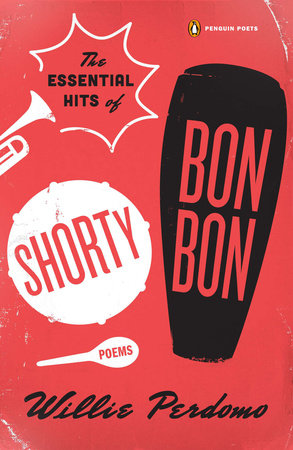

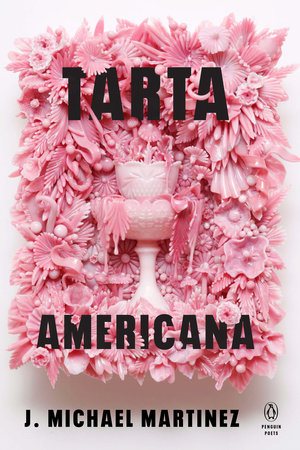



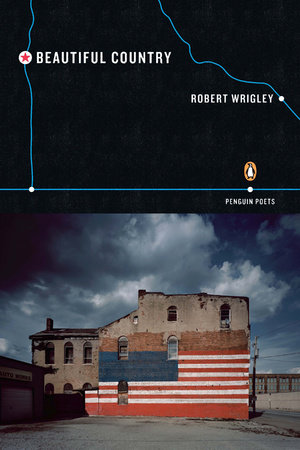

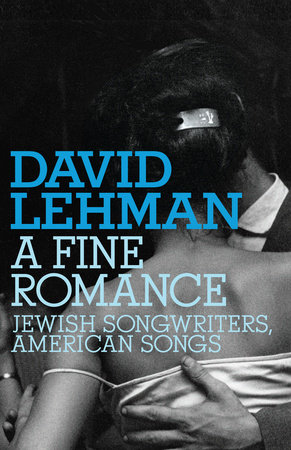

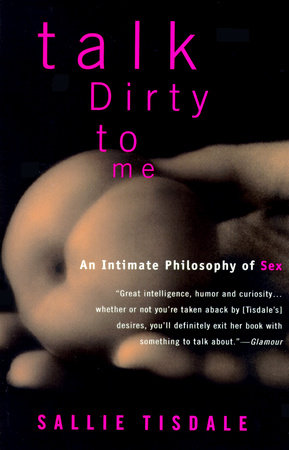

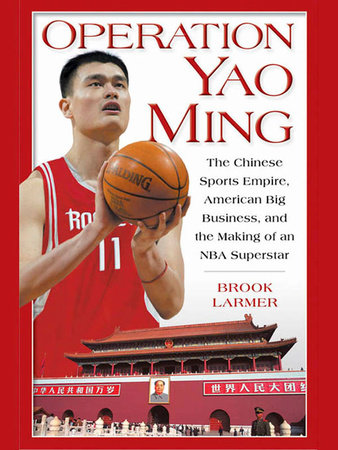

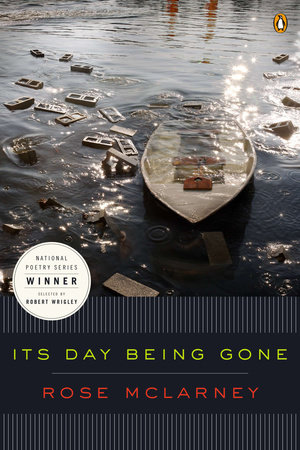

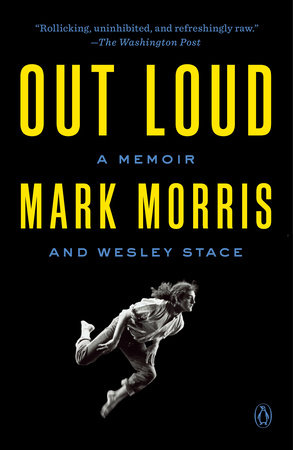
Visit other sites in the Penguin Random House Network